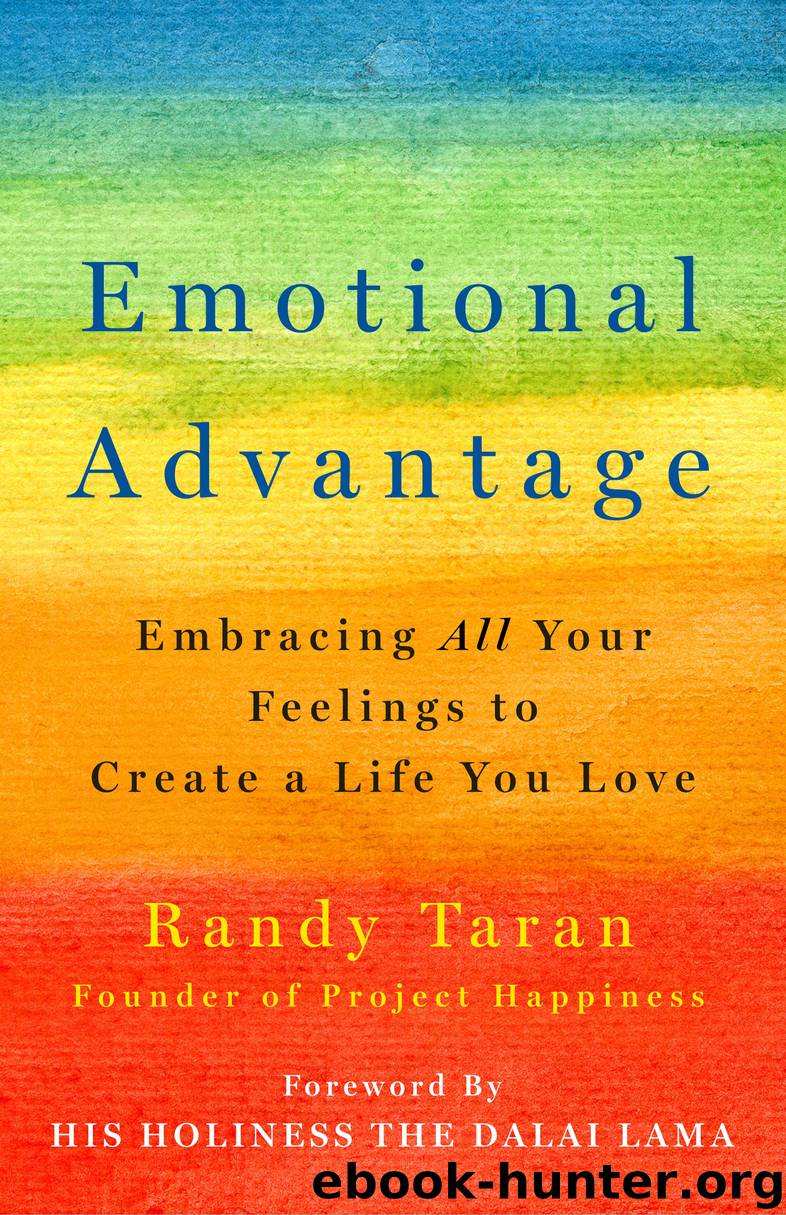Emotional Advantage by Randy Taran

Author:Randy Taran
Language: eng
Format: epub
Publisher: St. Martin's Press
Confidence Versus Self-esteem
Having healthy confidence is sometimes confused with having high self-esteem, but they are really not the same. The tricky thing about self-esteem is that it depends on external success, and it is based on how you stack up against others. Here’s how it works: When we are feeling successful, then the self-esteem is in great shape. Let’s say we ace a presentation, do well at a sports game, or win an argument, and we judge ourselves as valuable—life is good. The downside is that whenever something does not go right, whenever we make a mistake or fail at a goal, we judge ourselves as unworthy; the self-esteem fizzles like a balloon losing all its air.
Self-esteem is also based on being seen as better than someone else. Most people don’t realize that, with all best intentions, when they emphasize self-esteem, they are actually entering the land of comparison and competition. This applies to parenting, too. Every parent wants their kids to do well and have friends; this will give them the foundation for success in life. It sounds good, and if they bring home the As and are invited to the birthday party, their parents are happy and the child’s self-esteem is stoked. But what happens if their grades drop; what happens if someone was mean to them that day? Is that any reason for the child to feel less worthy?
Instead of praising the grades (“You’re the best in your class, you’re a genius”), consider praising the effort put into a project (“I can really see you worked hard on that”). The point is to guide children to do their best and strive for learning, rather than the elusive “gold star.” Instead of praising popularity, emphasize being a good person. Being a person you are proud of is far more important for long-term confidence than being admired by random people.
When we measure ourselves by factors that are beyond our control, like a job promotion, or the number of likes on a social media post, then we are giving others control of how confident we feel about ourselves. This prompts the question—is that the choice we want to make? When everything is perfectly in sync, all is well. But when any one thing goes wrong, the most anticipated results can blow up in no time flat. Being dependent on external circumstances is a setup for eroding confidence instead of building it up.
Amy Morin, in an article for Psychology Today, suggests that if you have to measure yourself at all, base it on things that you have a say in, not the external events of your life over which you have no control. When you have a solid sense of yourself and you feel good about yourself, you will be able to ride the waves of change. No matter if a project you are working on is delayed, if you are going through a breakup or job loss, you can connect to an inner knowing that you will get through it; you always do.
Download
This site does not store any files on its server. We only index and link to content provided by other sites. Please contact the content providers to delete copyright contents if any and email us, we'll remove relevant links or contents immediately.
Solve for Happy by Mo Gawdat(2509)
What I Need by J. Daniels(2075)
The Gravity Between Us by Kristen Zimmer(2070)
The Empath's Survival Guide by Judith Orloff(2057)
The Little Book of Lykke by Meik Wiking(2051)
Stop Being Mean to Yourself: A Story About Finding the True Meaning of Self-Love by Melody Beattie(1988)
Anxious for Nothing by Max Lucado(1968)
The Emotionally Absent Mother by Jasmin Lee Cori(1834)
Jealousy by Osho(1747)
Just Life & Love by A.E. Jones(1746)
What a Time to be Alone by Chidera Eggerue(1743)
Emotional Agility: Get Unstuck, Embrace Change and Thrive in Work and Life by Susan David(1689)
Who Says You Can't? YOU DO by Daniel Chidiac(1580)
Habits of a Happy Brain by Loretta Graziano Breuning(1580)
Think Happy to Stay Happy by Becca Anderson(1514)
Manipulation: A Guide to Mind Control Techniques, Stealth Persuasion, and Dark Psychology Secrets by Deborah Weiss(1512)
Persuasion: Learn Techniques in Manipulation, Dark Psychology, NLP, Deception, and Human Behavior by Tori Dasani(1471)
A Liberated Mind by Steven C. Hayes PhD(1418)
When Pride Still Mattered by Maraniss David(1408)
